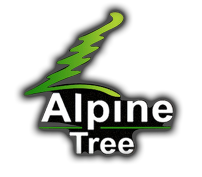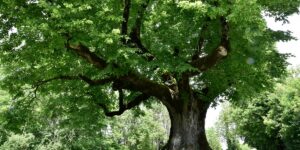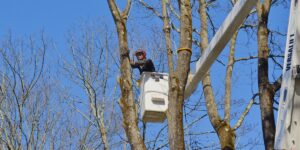You may not think about tree work as being all that different from what a landscaper does. After all, both arborists and landscapers work with plants and do pruning, planting, and plant maintenance. However, New Jersey’s tree work law makes it clear that the two are very different.
Here are some of the differences between an arborist and a landscaper:
- landscapers do not usually work in the high-risk situations involved in tree work, including working with dangerous equipment and near power lines
- they don’t do “aerial work” – instead, they’re only involved in “ground-based operations”,
- they don’t have the specialized training and equipment needed to do tree work safely and correctly, and
- they’re certainly not insured to cover the specific risks involved in tree work.
In New Jersey, there are specific laws that apply to companies and individuals that offer tree care work, regardless of what they call themselves. Below are the details you need to know before you hire anyone to do tree work on your New Jersey property.
NJ Tree Work Law Is For Your Protection
On April 17, 2017, New Jersey enacted a law that requires any tree care company for hire in New Jersey to:
- be registered with the New Jersey Board of Tree Experts,
- carry proper liability and workers’ compensation insurance, and
- employ a Licensed Tree Expert (LTE) and/or Licensed Tree Care Operator (LTCO).
Any company you hire to do tree work in New Jersey must comply with this law.
The NJ tree work law was adopted for two main reasons:
- An increase in injuries and fatalities in the tree care industry in New Jersey, largely due to insufficient training, lack of safety precautions, inadequate equipment, and the use of improper tree care techniques.
- An increasing number of consumer complaints about poor quality tree work and property damage, usually because someone hired “a guy with a chainsaw” who didn’t have the training and experience necessary to do the job safely and correctly.
According to the New Jersey Board of Tree Experts:
“It is now mandatory to hire a tree care business that is registered with the state and has employed a Licensed Tree Expert or Licensed Tree Care Operator depending on the services they offer for hire. It is important to make sure that the person is qualified to do tree work and fully insured in case an accident happens. Incorrect tree work can predispose your trees to many future problems, including tree failure. In addition, many homeowner policies will not cover injuries or damage done by an under-insured tree care contractor, which may leave the financial burden on the homeowner.”
Don’t be misled by a company that shows you a general business license or a pesticide license. Ask to see the following before you hire:
- a copy of the company’s NJ Business Registration (or click the link below to see all active registered businesses),
- its insurance coverage documents (a minimum of $1,000,000 general liability and workers’ comp for all employees) and
- the name and license number of the person in the company who is licensed as an LTE or LTCO.
How to Be Sure a Company is in Compliance with the NJ Tree Work Law
Check with the NJ Board of Tree Experts for an up-to-date directory of licensees and businesses that are in compliance with the law. You can also click here for a listing by county of businesses that are not in compliance with the tree work law.
You can view our certificate of liability insurance here. We are happy to provide our workers’ compensation policy upon request.
Alpine Tree Service has both an LTE and an LTCO on staff. Both are also ISA Certified Arborists.
- Bill Switzler – NJ LTCO #217
- John Angeleri – NJ LTE #582
What Is a Licensed Tree Expert (LTE)/Licensed Tree Care Operator (LTCO)? Why Should You Hire One?
Both an LTE and LTCO have met requirements for education and tree care work experience, and have passed a stringent examination on tree care practices, the biology of trees, the physics of pruning, and the risks that surround heavy trees, extreme heights, and dangerous equipment. Licensed individuals are also required to abide by a code of ethics, follow safety best practices, and take continuing education to ensure that they are up-to-date on new information, skills, and techniques in the tree care profession.
A Licensed Tree Care Operator (LTCO) is permitted to provide standard tree care work like pruning, removals and stump grinding or removal. The Licensed Tree Expert (LTE) can oversee standard tree work, as well as more specialized work such as cabling and bracing, tree risk assessment, tree appraisals, diagnosis and treatment of tree problems or diseases, fertilization and pesticide applications, and consultations.
In other words, LTEs and LTCOs are experienced tree care professionals who have proven their competence, continuously upgrade their knowledge and skills, work according to safety and tree care best practices, and can provide the best possible care for your trees.
Tree Work is Dangerous – Safety Training is Critical
Have you ever looked up the most dangerous jobs in the United States? While you might think of something like police or firefighters, or maybe “storm chasers,” it’s actually logging and other tree-related professions that top the list as the most dangerous jobs in the US.
Tree work is often done at extreme heights (over 100 feet in some cases), in dangerous weather situations (such as when responding to a storm-related tree emergency), using powerful equipment (chainsaws, chippers, stump grinders, excavators and more), near power lines and busy roadways, and in trees that can break or fall without notice.
Safety training is a large part of an LTE/LTCO and Certified Arborists’ training, and we take it seriously here at Alpine Tree. We not only train for normal work conditions, but we are also prepared to deal with dangerous situations that may arise. Lots of planning, training, and specialized knowledge is necessary to keep our crews, you, and your property safe.
If the Company’s Not Insured, YOU Could Be Paying For Years
Along with registration, licensure, and safety training, it’s important that a tree company you hire has the proper insurance (both general liability and workers’ compensation). Why? Because if something bad happens – say a large tree branch falls on your house or a worker is injured – you might end up paying a lot of money.
“But wait,” you say, “I have homeowners insurance, wouldn’t that cover something like that?” Unfortunately, many homeowner policies will not cover damage done by an under- or un-insured tree worker; as the property owner, you will likely be responsible for all repairs.
Every business that has employees in New Jersey (with a few specific exemptions) is required to carry workers’ compensation insurance. This insurance covers injuries that a tree care company employee may suffer while at work. It’s the only protection you have from the liability of someone being injured while working on your property. Without this, there’s a good chance that you will be the one paying the injured person’s medical bills, lost wages and any other costs associated with the injury.
We hope this helps you understand why hiring someone who complies with New Jersey laws for tree work is so important. It guarantees that your trees will be cared for by someone who really knows trees and their needs, follows safety procedures, and carries the proper insurance.





